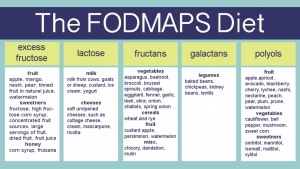One of the most common issues I help patients deal with in the office is the symptoms of gas, bloating and distention. Some patients feel that they pass too much gas while some patients feel they have excessive belching. Some patients have a combination of bloating, distention, cramps and diarrhea. Although these symptoms are very frustrating to deal with, there is frequently a good explanation as to why it is happening and treatments to keep it under control.
WHY DO YOU GET GASSY AND BLOATED?
We as humans don’t make much gas. There are two main sources for intestinal gas: gas that is ingested (usually swallowed air) and gas that is produced by fermentation from bacteria.
Swallowed air is a common source of gas and bloating. We typically all swallow small amounts of air when we eat but sometimes we swallow much larger amounts when we eat too fast. Chewing gum, smoking and drinking liquids to fast is a common cause of increased swallowed air. Once the air makes its way to your stomach it can be expelled as belching or it may go down stream into your small intestine where it can cause symptoms of bloating, distention and cramping.
Some people produce excess amounts of gas as a by-product of fermentation from bacteria in their bowels. There are several reasons why this can happen. Our colon normally contains billions of bacteria, which help us digest certain types of foods and are involved in helping keep our colon healthy. There are certain types of foods that don’t get digested very well by the normal enzymes in our stomach and small intestine and that allows these foods to reach the colon and get fermented by bacteria. These are commonly foods that are high in fiber and carbohydrates.
Some people lose the ability over time to digest certain types of carbohydrates. The two most common categories of this are lactose intolerance and fructose malabsorption. If you have become deficient in these enzyme pathways over time, when foods containing those carbohydrates are ingested they will not be broken down or absorbed in your small bowel like they should. They will then make their way down stream where they get fermented by bacteria and produce gas.
There are also certain disease conditions that can lead to an excess overgrowth of bacteria in your small bowel. This condition is called Small Intestinal Bacterial Overgrowth (SIBO). If, for whatever reason, you have excess amounts of bacteria in your small bowel, they will ferment foods before your body is done digesting and this will also cause gas production and symptoms.
Also, celiac disease is a cause of excess gas production.
If you’re interested in learning about how dietary changes can potentially reduce the symptoms of gas and bloating, I encourage you to learn about the FODMAP diet. I’ve written a blog article about this diet, so just click this link to learn more about the FODMAP diet.
ARE SOME PEOPLE JUST SENSITIVE TO GAS?
Not all patients that have symptoms of excess gas and bloating actually produce excess amounts of gas. There are conditions of the bowel where people have a heightened sensitivity to normal amounts of gas production. In these patients, normal amounts of gas that we all deal with every day cause them excessive bloating and cramps. We usually classify these as a functional bowel disorder, the most common of which is Irritable Bowel Syndrome (IBS). In people that have functional bowel disorders, the nerves that carry the signals from our intestines to our brain are sometimes hyper active. They have done studies on this in the past. One that I like showed that when you take a balloon and inflate it in the intestine of a patient with IBS, they feel that inflation at a much earlier rate then when a similar balloon is placed in a patient without IBS. The same amount of gas distention that is asymptomatic to most causes symptoms in an IBS patient. This is a much more challenging condition to deal with but one that also has treatment options available.
HOW ARE THESE CONDITIONS DIAGNOSED AND TREATED?
Lactose intolerance, fructose malabsorption and small intestinal bacterial overgrowth are all diagnosed with easy noninvasive breath tests that are done at our office. For information on these please click one of these links. Celiac disease can be detected with a blood test but the gold standard is biopsy of your small intestine during an upper endoscopy procedure. Irritable bowel syndrome is more difficult to diagnose and requires ruling out the other common conditions that can mimic it. Once the condition that is causing the gas production or perception of increased gas production is diagnosed, there are treatment options. They include a combination of diet and lifestyle modifications as well as medications that can be used. If this is a condition that you are having problems with please contact your physician or my office and I will be happy to help.
UPDATE: I’ve had a lot of success treating bloating in my practice with a natural product called Atrantil since creating this page. It was developed by a gastroenterologist in Dallas and targets the bacterial overgrowth in the small bowel that creates bloating symptoms for many. My recommendation is that if you bloat after eating certain foods that you look into Atrantil as a possible remedy to your bloating symptoms in addition to a low carbohydrate diet.


